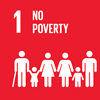
Business is not only about profit. Amidst unequal access to education, healthcare, and job opportunities, social entrepreneurship emerges as an alternative path to transform social challenges into sustainable solutions. This approach does not position profit as the ultimate goal but encourages businesses to create tangible social impacts.
Dr. Nadeera Ranabahu from the University of Canterbury explained that social entrepreneurship is a business approach rooted in solidarity and social care values. Unlike commercial entrepreneurship prioritizes financial gain, social entrepreneurship places social value as its core mission. Business models designed to address issues such as poverty, unequal access to education, environmental concerns, and the empowerment of marginalized groups reflect this. Social entrepreneurship is not just about profit, but about how a business can generate real and lasting impact for society.
In the session Innovative Business Models for a Sustainable and Inclusive Future at the Global Summer Week (GSW) 2025 held at FEB UGM, Nadeera presented the diversity of social entrepreneurship models—ranging from philanthropy-based models, to hybrid models combining social and commercial approaches, and even fully commercial models that still allocate part of their profits for social purposes. These models differ fundamentally in who pays, how the business receives funding, and who makes up the workforce. Yet, one thing that unites them is the social mission that drives every business decision.
To help students understand and design social entrepreneurship ideas, Nadeera—a researcher on minority economic integration, social innovation, and sustainability—introduced the Social Lean Canvas. This framework serves as a roadmap for building socially impactful business models. It covers business objectives, customer and beneficiary segments, the main problems to address, solutions offered, unique value propositions, revenue and cost structures, and success indicators, including social and economic aspects.
This discussion is increasingly relevant in the midst of global crises. When markets and governments cannot fully provide adequate housing, healthcare, or education, social entrepreneurship offers opportunities to create alternative solutions. It has the potential to generate jobs, empower communities, and deliver essential goods and services to marginalized groups.
Report by: Orie Priscylla Mapeda Lumalan
Editor: Kurnia Ekaptiningrum
Sustainable Development Goals















